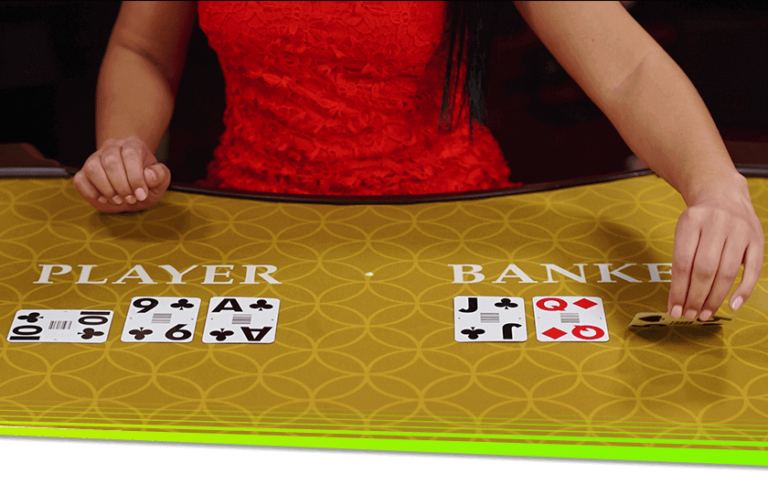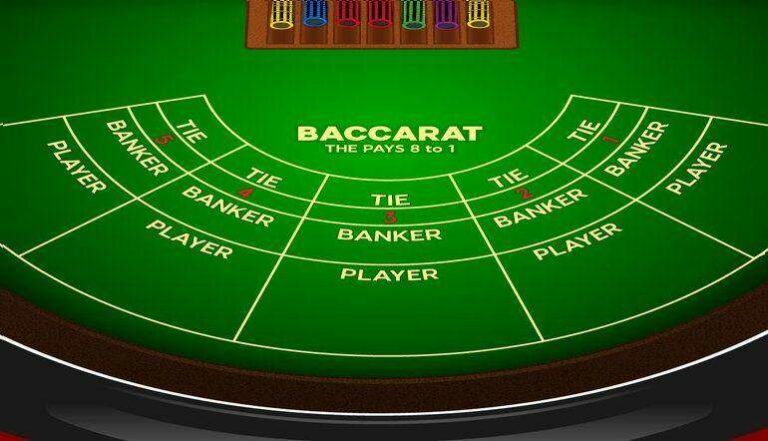In the UK, sports betting is the second most popular form of gambling after the lottery – and the biggest in terms of revenues. UK gambling and sports both play a huge part in British culture – and for millions of Brits, they go hand-in-hand.
What sports are bet on most, both in terms of regular punters and by money spent? Read on to find out the facts about sports betting in the UK.
Popular UK Sports Betting Competitions & Events
The UK is the birthplace of a large number of sports, and as a result, has a huge variety of professional-level competitions. Sports bettors have a lot of choices! They spend a lot of money too – around £35bn a year.
Let’s take a look at the biggest sports and events when it comes to UK sports betting.
Football Sports Betting

Football is the UK’s national sport and so it’s no surprise it’s the most gambled on sport – at least in terms of the percentage of the population who bet on it regularly.
A recent UK Gambling Commission survey revealed that around 5% of British people had put at least one bet on the football in the last month.
The total annual amount wagered on football in the UK was an eye-watering £11.4 billion – with around 90% of that online.
The Premier League is an obvious choice for bets, but the FA Cup final is still a big draw for punters, as is the UEFA Champions League final.
The FIFA World Cup and UEFA Euro Championship also attract a lot of betting – including from people who might not usually bet on club football. The British bet around £1.5bn on the last World Cup.
Horse Racing Sports Betting

Horse racing has been closely associated with gambling in the UK since at least the Tudor period. Nowadays it’s rare to find fans who watch without also betting on it – although the Queen is one famous exception.
More money in total was wagered on horse racing than football over the year: £13.4bn.
Once again, online gambling made up the majority of these revenues. Around 68% were wagered online, 30% in bookies, and 1% at the races themselves.
Around 3.3% of the UK population placed at least one bet on horse racing in the last month – slightly less than football.
However, this figure is a bit misleading, because many Brits only wager on the biggest horse racing events each year. Around 1/3 of British adults placed a bet on the Grand National in 2021, for a total of £100m. In fact, for many people in the UK, the Grand National is their one sports bet of the year.
The Grand National is the most famous UK horse racing event – but a close second is the Cheltenham Festival, which involves 28 races taking place over five days. Around £500m gets wagered on Cheltenham in total!
Tennis Sports Betting

Tennis might not be the first sport that comes to mind when you think of gambling, but around £1.9bn gets wagered on it each year in Britain. Around 0.2% of the adult population placed a bet on Tennis in the past month.
Wimbledon is the oldest and most prestigious tennis tournament in the world. It’s also a favourite for British people to have a flutter on – around £100,000 worth of wagers are set in each early round match, which is much more on the later rounds and final.
Greyhound Racing Betting

Dog racing isn’t as popular as it once was, with less than 1% of Brits placing a bet on it during the last month. But in terms of revenue, it’s still very impressive: £1.7bn.
Unlike horse racing and football, most of these bets were placed in person at bookmakers or on the track. 40% were placed online.
Dog racing and horse racing are the only sports where gambling adverts are allowed during live coverage on UK television.
The biggest event in the dog racing calendar is the English Greyhound Derby. This has a total prize fund of £175,000 – quite a lot lower than the Grand National’s £750k.
Cricket Sports Betting

Cricket is another sport that you might not immediately associate with gambling. In fact, during its early history, it was notorious for the large-scale gambling that went on at matches. The working classes would compete while the gentry gambled on the outcome – as with the other favourites of the nobility: boxing and horse racing.
In 2019, around £760m was gambling on cricket in the UK via the internet. More was gambled in bookies, but the data is not available to know exactly how much more. However, it’s a fair assumption that at least £800k is gambled on cricket each year in the UK.
For British test cricket fans, the Ashes is the biggest event on the cricketing calendar. When it comes to short-form cricket, The ICC Cricket World Cup is the most-watched event with the T20 World Cup being the second most-watched game.
Golf Sports Betting

Golf is a beloved pastime for many famous gamblers – who enjoy numerous side bets that can be placed during a round to make things more interesting. Infamous poker maverick Stu Ungar famously lost $78,000 (around $400k in today’s money) wagering on golf the first time he had ever played the game! Golf side-betting games include Nassau, Skins and Bingo Bango Bongo.
There are no records for the amount of informal betting taking place each year on the thousands of golf courses across Britain – but we do know that £218m was wagered with online bookmakers.
The biggest events are the Majors (the Masters, the PGA Championship, the U.S. Open and the British Open) and the Ryder Cup, which sees Europe take on the USA in a match play format.
eSports Betting

The coronavirus pandemic was a disaster for sports fans – and sports betting – as all major leagues were suspended.
However, virtual sports were not similarly harmed they saw unprecedented growth. Betting on them also grew massively. Online betting companies saw their profits from eSports climb from £50k in March 2019 to £1.5m in March 2020, a year-on-year increase of nearly 3000%.
Profits on eSports betting peaked at £4.6m in April 2020, before stabilising back to between £1m and £2m a month ever since. So it looks like gambling on eSports is here to stay in the UK.
Massive eSports competitions that attract a lot of wagers are the Electronics Sports League (ESL), the League of Legends Championship Series (LCS) and the FIFAe World Cup.
American Sports Betting

Despite the vast array of domestic sports to gamble on, British punters are always hungry for more. Traditionally American sports such as American football, basketball and baseball are becoming more and more popular across the pond.
The NFL is a favourite for British sports fans and bettors alike, especially now a game is held in London each year. The Superbowl is the biggest event, with around 1/5th of British gamblers placing a bet on the 2021 game between the Buccaneers and the Chiefs. Among them was a gambler who bet £100k on the coin toss – and won!
UK Sports Betting and Gambling statistics
According to the most recent UK Gambling Commission survey, 42% of British adults had gambled at least once in the previous month.
The most common choice for flutter was the National Lottery, with over a quarter of adults taking part in the previous month. For many people that is their only form of gambling – excluding National Lottery products, 28% of adults had gambled in the last four weeks.
Sports betting is the second most popular form of gambling in the UK, with 6% of adults betting on sports in the previous month – however, it should be noted that the survey asked separate questions about horse racing (3.3%), dog racing (0.3%) and football pools (1.6%).
Although there will be some overlap it’s likely the percentage of UK adults who have bet on sports is higher than the 6% figure. And remember this is only people who had placed a bet in the four weeks before the survey – the number of people in the UK betting on sports at least once a year is much higher.
When we look at the money spent, it is clear that sports betting is king, accounting for just over 1/3 of all gambling revenues and operator profits.
YouGov claims that 46% of British people surveyed have a positive or neutral opinion of gambling as a whole. Men have a more favourable view than women, and Baby Boomers have a less favourable view than Millennials.
Football fans are the most likely to be gamblers, with 28% of them have placed a bet in the last year. 2% place a bet daily, 5% once a fortnight, and 6% once a week.
One thing to remember when considering these statistics is they only cover commercial gambling – there is also a great deal of informal wagering going on in the UK that doesn’t get recorded!
Common UK Sports Bets
The UK is a sports bettor’s paradise, with numerous bookmakers to choose from – each offering a dazzling array of sports bet options.
The traditional choice is fixed-odds betting, but parimutuel betting and spread betting are also popular.
Fixed-odds Betting
Fixed-odds betting is simply making a bet offered at a certain price, which is locked in once you place your money. British odds are expressed as a ratio of the potential winnings to the stake, e.g. 2-to-1. However, you also get your original stake back if you win. In the 2-to-1 example, you would get £3 back if you bet £1, a profit of £2.
Traditionally in the UK, bookmakers lay the odds and collect the bets – however, there are also betting exchanges, such as Betfair and Matchbook, which allow customers to “be the bookie” and lay odds themselves for other punters.
Parimutuel Betting
Parimutuel betting is mainly associated with horse and dog racing. Here all the bets are pooled and the winners take an equal share of the pool (after the operator’s commission is deducted). This means that the odds you get depend on how many people have bet on the same outcome as you – and so your potential pay-out fluctuates after you place your bet.
Football pools could be considered a type of parimutuel betting, although they also are similar to lotteries. They used to be extremely popular, but have somewhat fallen out of favour. Players must correctly predict the results of several games (usually ten).
The most common variant has players select which matches will end in a score draw (i.e. a draw that is not nil-nil). Like a lottery, your prize depends on how many you get right, and how many other players have achieved the same.
Accumulators have now replaced football pools for many British gamblers, mostly through bet builders. Here the punter makes a series of bets, with the winnings being automatically invested in the next bet. Huge amounts can be won from very small bets – but these are rarely good value.
Spread Betting
Spread betting is an import from the US that has become popular in the UK. The simplest form is to ask whether one team will win by more than a certain number of points – e.g. will Manchester Utd beat Tottenham by more than 2.5 goals? Using half goals like this means there cannot be a draw – either the team will “beat the spread” or not.
In-play and Prop Betting
With the advent of the internet and mobile sports betting, in-play betting has become very popular. Punters can place bets while a match is in progress, or cash out existing bets at any time.
In-play betting has also led to an increased interest in prop betting. Prop bets are wagers for specific incidents occurring during the event – for example, the number of wide balls in a cricket match, or the length of the furthest drive in a golf game.
Prop betting is big in football. Some popular English Premier League prop bets include:
- Which player will be first the goalscorer?
- Will a particular player get carded?
- How many corners will there be during the game?
- Who will be winning at halftime?
Then there are long-term prop bets – who will win the league, who will be relegated, who will be the next manager to get sacked. Most bookmakers offer hundreds of these, so take your pick – and many operators will let you come up with your own.
And finally, there are the long-term bets. These are usually placed by confident parents on their children’s future sporting successes. They often make the newspapers when they come to pass – but of course, they usually don’t!

UK sports betting is seriously big business – and a regular pastime for millions of Brits. Football is the most popular choice overall, but horse racing has a strong claim to being the sport that is bet on most in the UK – at least in terms of pounds wagered and the widespread tradition of placing a bet on the Grand National.



















